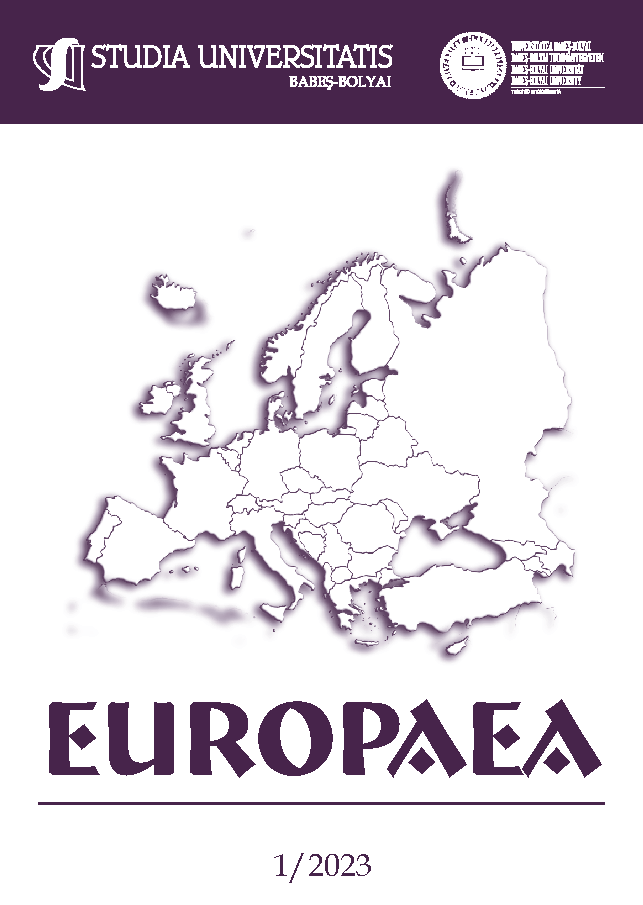HOW MUTUALLY HURTING STALEMATES BECOME ESSENTIAL IN PEACE-BUILDING EFFORTS. THE CASE OF LIBERIA
DOI:
https://doi.org/10.24193/subbeuropaea.2023.1.12Keywords:
peace studies, ripeness, mutually hurting stalemates, peace-building, post-conflict developmentAbstract
The paper focuses on two concepts developed by William Zartman, namely ”ripe moments” and “mutually hurting stalemates”. Basically, the concepts tackle the idea of certain proper moments for the beginning of peace talks when the parties to the conflict believe that they are trapped in a painful impasse which no longer brings them victory. Our paper aims to show that hurting stalemates are sometimes the adequate starting point for peace-building efforts as well, not only for starting negotiations, and to apply this on the case of Liberia. The paper is organized around the following research questions: Is the hurting stalemate a military deadlock? Is a similar painful deadlock a good starting point for building sustainable peace in post-conflict societies?
References
Adebajo, Adekeye (2002), Building Peace in West Africa: Liberia, Sierra Leone, and Guinea-Bissau, Boulder: Lynne Rienner Publishers.
Adelman, Howard (2002), “Refugee Repatriation”, in Stephen John Stedman; Donald Rothchild; Elizabeth M. Cousens, Ending Civil Wars. The Implementation of Peace Agreements, Boulder, London.
Adelman, Howard, (1998), “Why Refugee Warriors are Threats", Journal of Conflict Studies, vol. 18, no. 1.
Arnault, Jean (2006), Good agreement? Bad agreement? An implementation Perspective, Center of International Studies, Princeton University.
Cleaver, Gerry; Simon Massey (2006), “Liberia: A Durable Peace at Last?”, in Oliver Furley and Roy May (eds.), Ending Africa's Wars: Progressing to Peace, Aldershot: Ashgate, 179–99.
Collier, Paul (1994), “Demobilization and Insecurity: A Study in the Economics of the Transition from War to Peace”, Journal of International Development, May-June, https://doi.org/10.1002/jid.3380060308.
Davies, Victor A.B. (2005), “Liberia and Sierra Leone: Interwoven Civil War.” in Augustin Kwasi Fosu and Paul Collier (eds.), Post-Conflict Economies in Africa, London: Palgrave Macmillan, 77–90.
Gamba, Virginia (2003), “Managing Violence: Disarmament and Demobilization”, in John Darby; Roger Mac Ginty, Contemporary Peacemaking. Conflict, Violence and Peace Processes, Palgrave.
Harris, David (1993), “From ‘Warlord’ to ‘Democratic’ President: How Charles Taylor Won the 1997 Liberian Elections”, The Journal of Modern African Studies, 37, no. 3, 431–455.
Harris, David (2014), Civil War and Democracy in West Africa: Conflict Resolution, Elections, and Justice in Sierra Leone and Liberia, London: I.B. Tauris.
Ikomi, Emmanuel Oritsejolomi (2007), Implementation of Abuja II Accord and Post-Conflict Security in Liberia, Monterey, CA: Naval Postgraduate School.
John Darby; Roger Mac Ginty, (2000), The Management of Peace Processes, Basingstoke: Macmillan Press Ltd.
Nilsson, Desirée (2000), The Significance of Signing. Who Fights after Peace Agreements in Civil Wars?, Department of Peace and Conflict Research, Uppsala University.
Renda, Luca (1999), “Ending Civil Wars: The Case of Liberia,” The Fletcher Forum of World Affairs, vol. 23, no. 2, 59-76.
Schrodt Philip A.; Ömür Yilmaz and Deborah J. Gerner (2003), “Evaluating ‘Ripeness’ and ‘Hurting Stalemate’ in Mediated International Conflicts: An Event Data Study of the Middle East, Balkans, and West Africa”, Annual Meeting of the International Studies Association, 1-21.
Schrodt, Philip A.; Yilmaz, Ömür; Gerner, Deborah J. (2003), Evaluating “Ripeness” and “Hurting Stalemate” in Mediated International Conflicts: An Event Data Study of the Middle East, Balkans, and West Africa, Center for International Political Analysis, Department of Political Science, University of Kansas.
Spear, Johanna (2002), “Disarmament and Demobilization”, in Stephen John Stedman; Donald Rothchild; Elizabeth M. Cousens, Ending Civil Wars. The Implementation of Peace Agreements, Boulder, London.
Stedman, Stephen John; Tanner, Fred (2003), “Refugees as Resources in War”, in Refugee Manipulation. War, Politics, and the Abuse of Human Suffering.
Sticher, Valerie (2022) “Healing Stalemates: The Role of Ceasefires in Ripening Conflict”, Ethnopolitics, 21:2, 149-162, DOI: 10.1080/17449057.2022.2004776.
Zahar, Marie-Joëlle (2003), “Reframing the Spoiler Debate in Peace Processes”, in John Darby, Roger Mac Ginty, Contemporary Peacemaking. Conflict, Violence and Peace Processes, Palgrave.
Zartman, William (2000), “Ripeness: The Hurting Stalemate and Beyond”, in Paul C. Stern; Daniel Druckman (eds.), International Conflict Resolution after the Cold War, Washington, DC: National Academy Press.
Zartman, William (2001), “The timing of peace initiatives: Hurting Stalemates and ripe moments”, Global Review of Ethnopolitics, 1(1), pp. 8–18. https://doi.org/10.1080/14718800108405087.
Zartman, William (2003), “The Timing of Peace Initiatives: Hurting Stalemates and Ripe Moments”, John Darby; Roger Mac Ginty, Contemporary Peacemaking. Conflict, Violence and Peace Processes, Palgrave.
Downloads
Published
How to Cite
Issue
Section
License
Copyright (c) 2023 Studia Universitatis Babeș-Bolyai Europaea

This work is licensed under a Creative Commons Attribution-NonCommercial-NoDerivatives 4.0 International License.






